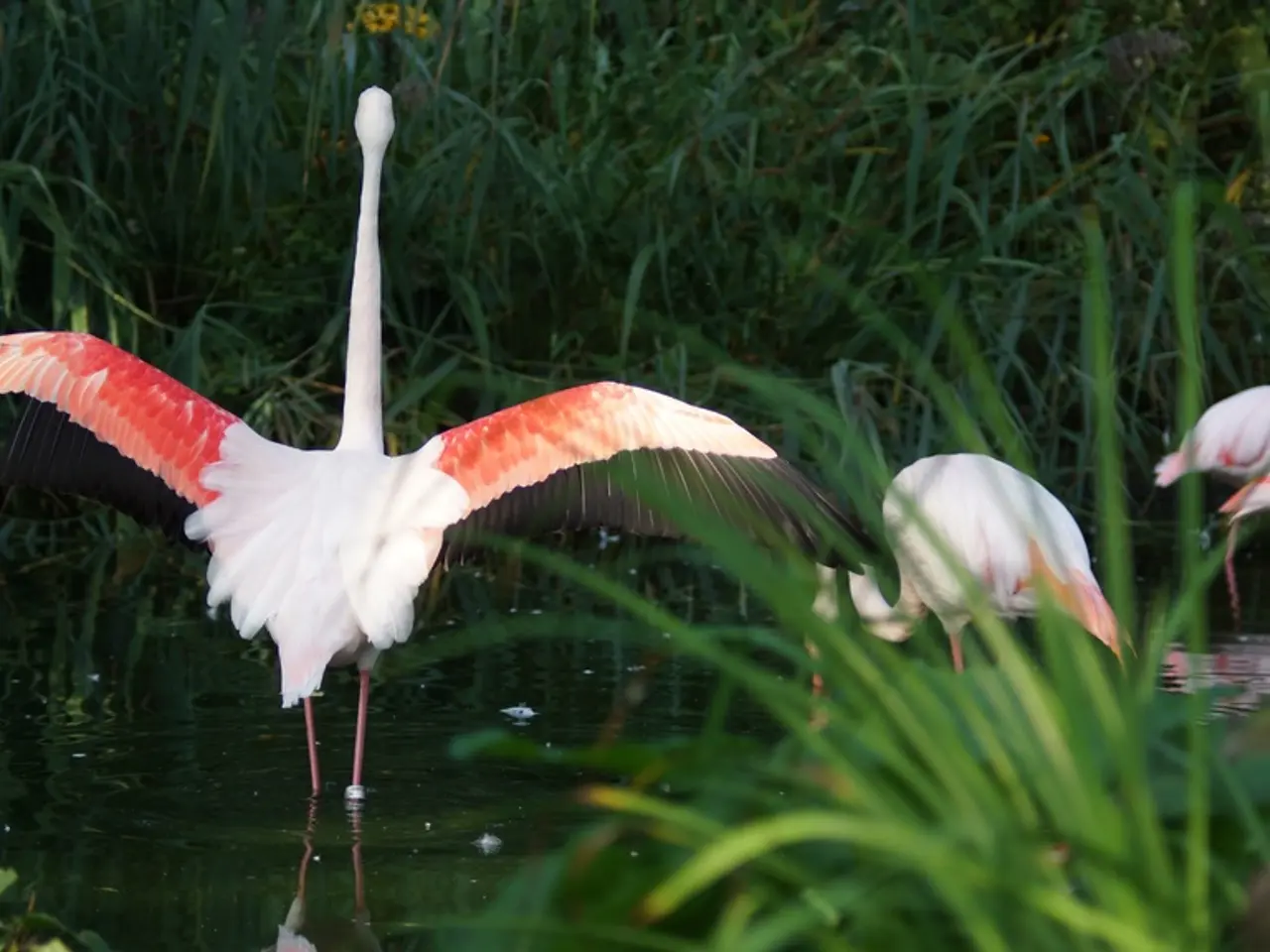Mangalajodi's Transformation: Once a Stronghold of Poachers, NowStewards of Wildlife Conservation
Nestled on the northern banks of India's Chilika Lake, the village of Mangalajodi has become a beacon of community-led ecological transformation. Once a hub for bird hunting, Mangalajodi is now renowned as a thriving sanctuary for migratory birds, thanks to the dedication of its local community.
This remarkable transformation has been driven by a successful community-based conservation initiative. Villagers, who were once poachers, have shifted gears to become protectors and eco-tourism stewards. Today, Mangalajodi hosts over 300,000 migratory and resident birds during peak seasons, making it a vital habitat and a haven for bird species.
Visitors to Mangalajodi can immerse themselves in a variety of experiences, including traditional sailing boat rides through reed-filled channels, sunrise and sunset bird photography, community-guided bird walks, and learning about conservation efforts directly from the village guides.
A canoe trip through the marshlands is a must for birdwatchers. Patience, mindfulness, and watchfulness are key, as one might spot rare species like the yellow bittern, purple swamphens, ruddy shelducks, open-billed storks, grey herons, and purple herons in close proximity.
Dressing warmly in the early morning hours and allowing nature to teach its lessons without making much noise are essential practices for visitors. The canoe trip can last up to three and a half hours, ensuring that visitors have ample time to soak in the tranquil surroundings and observe the avifauna.
Mangalajodi's conservation story is a testament to the power of local involvement and stewardship in effective conservation. During prime migratory phases, such as winter, sentinels watch over the marshlands to deter the remaining poaching industry.
The increase in migratory bird numbers over the last three years is a clear sign of a successful conservation effort. This success is a result of transparent conversations, education, training, and the promise of a better future.
The transformation of Mangalajodi from a village of poachers to a sanctuary for birds is a journey that spans decades. It has been achieved through the tireless efforts of NGOs and local visionaries who have worked hand-in-hand with the community to create a sustainable future.
Mangalajodi's sunrise and sunset are the best times for birdwatching, with open-billed storks often seen flying to the hills just after sunset. Ayan Adak, a business consultant, captured these stunning moments using a Canon EoS 60D.
To reach Mangalajodi, one must embark on a 2-hour drive from Bhubaneshwar, with the last stretch being a dirt track. Despite lacking five-star properties, multicuisine menus, and asphalt roads, Mangalajodi offers clean and tidy rooms at accommodations like Mangalajodi Bird View Resort and Mangalajodi Ecotourism Cottage, serving locally sourced food.
In Mangalajodi, the villagers' pride in their transformation from poachers to protectors is palpable. Their tales of the journey serve as a reminder of the potential for positive change when communities come together for the protection of their environment and the preservation of its diverse wildlife.
In Mangalajodi, the villagers have transitioned from being poachers to protectors, fostering a unique blend of environmental science and lifestyle along their transformation journey. Visitors can partake in this change and engage in eco-tourism activities such as birdwatching, learning about the conservation efforts firsthand from the village guides, and experiencing the tranquil surroundings in the village that was once a hub for bird hunting.
As a result of the successful community-based conservation initiative, Mangalajodi now serves as a vital habitat and travel destination, attracting over 300,000 migratory and resident birds during peak seasons, including rare species like the yellow bittern and open-billed storks. This transformation serves as an inspiring testament to the power of local involvement and stewardship in environmental science and sustainable living.




